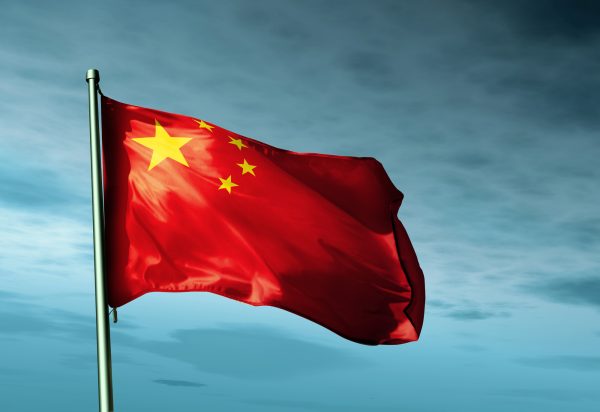The US Under Secretary for Economic Growth, Energy and Environment, Jose W Fernandez, during his visit (May 9-12) to Cape Town, South Africa in his media interaction stated that the US was not opposed to China investing in Africa, as long as the investments centered on upholding human rights, democracy and creating jobs for locals. He added that the US’ investment policies focus on capacity building of locals and not importing jobs and working to promote beneficial, sustainable and inclusive development. The US envoy noted that African governments wanted investors, including Chinese to respect local laws and local interest, who follow human rights, including worker rights and protection for environment. His remarks came following Conference on African Mining-2022.
A few days before these remarks, the Namibia Economic Freedom Fighters (NEFF) started its protests against the Chinese businessmen for their their involvement in sale of counterfeit goods. The NEFF got support from Affirmative Repositioning Movement (ARM) and the opposition party Popular Democratic Movement. The groups demanded that Namibians should also be permitted to sell counterfeit goods to compete with Chinese products and prices.
The government arrested (May 13) leaders of NEFF Michel Amushelelo and ARM Dimbulukele Navyoma along with 8 others for protesting at China Town in Windhoek. The protesters were claiming that the entire China town was engaged in selling of counterfeit goods and demanded the shutting of Chinese businesses and their goods burnt. Given the resentment among the locals, the NEFF is likely to get support from other civil societies’ members and could further exacerbate the situation against Chinese businesses.
The organizations opposed to Chinese businessmen have sought action against the established accusing them of being involved in money laundering and tax invasion, demanding audit of Chinese companies by the Namibia Revenue Agency (NamRA). Chinese employers were also blamed for sexually harassing female employees. The groups also expressed their dismay regarding the exploitation of workers employed in complexes owned and administered by Chinese, where natives are being exploited like animals; with low wages such as N$ 400, with no benefits and privileges. Seeking employment contracts for workers, it was alleged that Chinese business owners have no regard for the country’s constitution, labour laws and human rights.
The civil society members also held that the establishment of ‘ghettos’ like Chinatown and particularly those who sell counterfeit goods, has only benefitted foreign nationals since they adversely impact the local businesses. Calling for the restricting Chinese businesses to wholesale trade only, the groups called for reserving the retail space for local businessmen.
In what could be termed as an acknowledgement of the wrongdoings of its businessmen the Chinese Embassy in Namibia issued an eight point advisory to its nationals guiding them how to behave with the locals outlining dos and don’ts for them. The list among others includes, things like ‘don’t bribe the police, don’t shoot local employees, don’t illegally infringe on local copyrights’ and how Chinese companies should handle labour unrest. However, these guidelines have come under criticism from the protesting organizations who termed these ‘aggressive’, having potential of misuse and aggravating the already existing tensions.
The events in Namibia are not in isolation and highlight a general situation in Africa where the same story being repeated elsewhere in the Continent. It has been observed that gradually the Chinese businessmen have encroached on local enterprises, rendering African states highly dependent upon their products and exports. This has led to displacement of local products, which besides; Namibia has been noticed in South Africa where the textiles industry has been hit hard due to cheaper Chinese exports, leading to loss of not only about 75000 jobs in the country but also for shrinking of 10 per cent of market share in the neighboring economies.
Perhaps the biggest attribute to the woes of Africa is President Xi Jinping’s ‘Belt and Road Initiative (BRI)’ which aimed at investments in big infrastructure projects such as ports, rails, roads, pipelines and power plants. BRI, after seven years since launch, has become a symbol of wasteful spending, ecological destruction and debt burdens for the African countries. Further the BRI lacks transparency and accountability leading to corruption in these projects. It was noted in a study during 2018 about 270 projects under the BRI had issues related to debt sustainability, labor & environmental standards, national security, transparency and corruption.
Another issue of concern has been the violation of human rights at the hands of Chinese businessmen in the Continent. A report compiled (2021) by London-based Business and Human Rights Resources Center, Africa, has noted that of the total cases of human rights violations, about 27 per cent were recorded against Chinese companies during the 2013-19 period. The issues, mostly related to loss of livelihood, environment impact assessment and labor rights, were brought to fore in several countries such as Uganda, Kenya, Zimbabwe, Congo and now in Namibia, attracted a backlash from the local civil society groups in these countries.
While in some cases African governments, like Rwanda and Kenya, have taken actions on Chinese companies/individuals, this has been inadequate to deter the exploitation of the African labor and resources. The Governments of African countries should take cognizance of the voices raised by the human rights and civil society groups to redeem social status of their nationals and prevent their exploitation at the hands of foreigners. The governments are needed to work-out those policies for investment that focus on capacity building of their nationals and promote beneficial, sustainable and inclusive development.

Leave a Reply